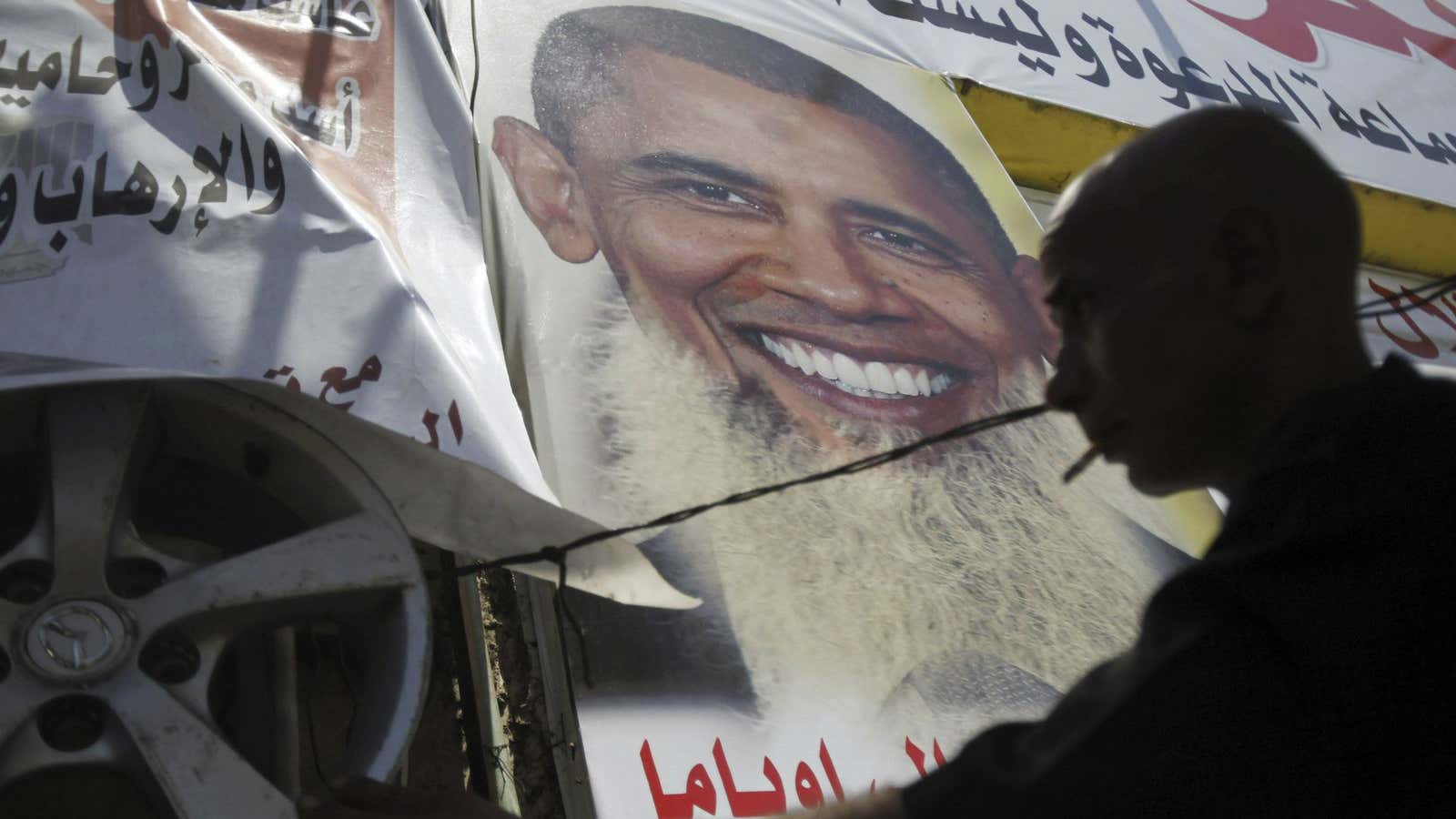When an Iraqi Sunni politician hints on an Arabic TV station that Barack Obama is a Shia Muslim, he’s not only saying, “He’s one of them,” but also, “He’s not one of us.” In the madness that accompanies the escalating Shia-Sunni conflict across the Middle East, perceptions of which side the American president is on have come full circle.
(And never mind that Obama is not a Muslim at all. If that hasn’t stopped many Americans from thinking he is, why should it stop Arabs?)
The Iraqi politician, former parliamentarian Taha al-Lahibi, is a well-known crank and conspiracy theorist. He once suggested that the regimes in Syria and Iran created ISIL, blithely ignoring the fact that those two regimes are Shia, and that the terrorist group is Sunni—and enjoys nothing so much as slaughtering Shia. But Lahibi isn’t the only commentator to peddle the Obama-is-Shia theory. In recent months, it has popped up with some frequency on Arab TV. (For a small sample, see this video from the Middle East Media Research Institute (MEMRI.)
Where have I heard this before? Ah yes, in Iraq, in the weeks after Obama’s election in 2008. Back then, there was a little jostling among Arab conspiracy theorists, with Shia and Sunni each claiming him as their own. The Shia said they had the stronger claim, since “Hussein,” Obama’s middle name, is the name of one of their most revered imams. But plenty of Sunnis use the name, too. As I wrote at the time, Shia scholars pored over ancient texts—and Obama’s own history—to bolster their claims.
My personal favorite: O-ba-ma, translates to “He’s with us” in Persian.
Barely five months later, many Shia joined Obama’s American critics in hyper-ventilating when the president appeared to bow before Saudi Arabia’s King Abdullah, a Sunni. This was proof that the president must be a closet Sunni. My Iraqi Sunni friends thumbed their noses at my Iraqi Shia friends: ‘He’s with us.’
That notion also took hold in Egypt in 2011, after the Arab Spring revolution toppled the dictator Hosni Mubarak and free elections brought the Muslim Brotherhood—a mostly Sunni movement—to power. Many secular Egyptians loathed the Islamist party as much as Mubarak, and would later join forces with the military to bring down the Brotherhood government. In the febrile climate that accompanied the anointing of Abdel Fatteh al-Sissi as dictator, Egyptian liberals denounced Obama as a secret member of the Brotherhood—and, by implication, a Sunni.
Today, conspiracy theorists of each sect are no longer claiming the American president as one of theirs. Obama has become so unpopular, they expend great energy to argue that he must be on the other side. And all his actions in the Middle East are viewed through a sectarian lens. Some Sunnis believe his eagerness for a nuclear deal with Iran is informed by his father’s Shia faith. (Iran’s state media insists Iranians hate Obama.) Many Shia see his backing of the Sunni coalition against the Shia Houthi rebels in Yemen as proof of his Sunni leanings.
We’ve come a long way from O-ba-ma.
